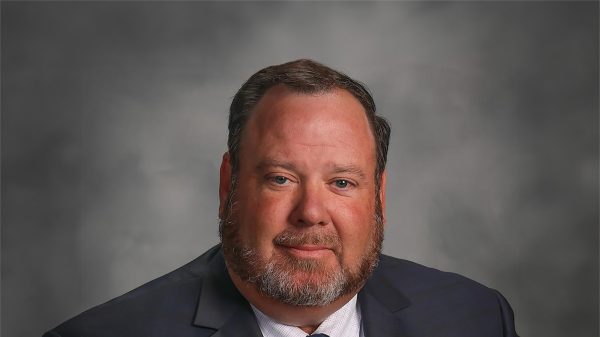On Thursday, Judge Samuel Junkin formally recused himself from the case of Timothy Vess Benton, who pled guilty to two counts of sodomy, second degree, in 2019. Benton had been initially indicted on 46 other charges, including “enticing a child for immoral purposes.”
APR reported on Monday that Junkin approved Benton’s transfer to a house arrest program earlier this year. The family of one victim said they didn’t find out about the decision until weeks after the fact and that the judge’s reasoning didn’t make any sense.
In the order of recusal, Junkin first highlighted apparent difficulties “providing for [Benton’s] health and safety” in prison. A year before Benton committed the acts which led to his guilty plea, he suffered a traumatic brain injury that one physician wrote caused a “substantial loss in cognitive function.” The judge also expressed his personal concerns about Benton being awarded parole.
“Several months ago, I learned that Mr. Benton was going to be considered for parole in October of this year,” he wrote. “Shortly after learning that, it became clear that Leigh Gwathney, who was then the Chair of the Parole Board, would not be re-appointed to that position. This was significant in my mind because although the Parole Board was under intense pressure to increase the number of defendants being released on parole, Ms. Gwathney was consistent in her denial of granting parole to defendants despite significant public backlash.”
“Mr. Benton’s placement into the Community Corrections Program ensured that he would not be released on parole into the general public, but would be confined to a specific place, determined by this Court, and would receive the necessary cognitive and psychological treatment that hopefully prevents this from ever happening again. I believe this to be the best available resolution and I stand by my decision,” Junkin explained.
He also related that, following the public outcry, he’d had Eric Anderson, deputy general counsel of the ABPP, verify participating in the community corrections program would prevent Benton from receiving parole.
Earlier this week, the father of one of the victims, Christopher Key, told APR Junkin had explained to him personally that the decision was meant to preempt parole. Key, however, called that reasoning “bull you-know-what.”
Judge Junkin specifically cited his communications with the defendant’s and victims’ families, presumably including Key, as a primary reason for his recusal.
“[Since] the entry of this order, I have had significant contact outside of court with the families of the victims and the defendant, as well as the attorneys appearing on both sides of this case,” Junkin wrote. “As a result of this contact, as well as the media attention generated by my order, I am of the opinion that my impartiality could reasonably be called into question.”
Tuscaloosa County District Judge James Gentry has been appointed to replace Judge Merrell Nolen in another case involving Benton’s alleged violation of the Sex Offender Registration and Notification Act. Due to a potential conflict of interest, Nolen had already recused himself before Junkin made a similar decision on Thursday.
Key says he believes Judge Junkin’s recusal “proves what I have been saying all along.” He interpreted the description of events in the recusal order as confirmation that Junkin “released [Benton] without proof that he would get parole.”
“I hope Benton is back in prison soon and this Junkin is disbarred,” Key added.
Andrew Hamlin, the district attorney who filed a motion last week to modify Benton’s sentence and return him to prison, also formally recused himself from the case earlier this week.
“I prosecuted the case against Vess Benton years ago and secured a 17-year sentence,” Hamlin wrote in a public Facebook post. “Recently, I was required to recuse myself because of a conflict of interest that developed after the original prosecution. That conflict did not exist at the time of trial.”
“Both the Attorney General’s Office and the Alabama State Bar were consulted with regard to the conflict, and provided guidance in the decision to recuse,” he stated. “I personally spoke with both victims’ families and explained the conflict so they heard it directly from me.”
“The Attorney General’s Office now has full responsibility, and I’ve provided them with all the information and resources they need,” Hamlin added. Alabama Attorney General Steve Marshall has said he will continue to pursue Hamlin’s attempt to return Benton to prison.
Hamlin’s recusal was caused by an employee of the DA’s office being related to Benton and therefore a possible character witness in the case, one individual with knowledge of the decision told APR.

















































